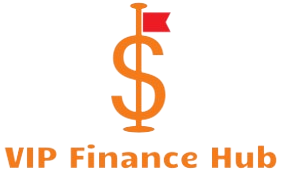Exploring the realm of financial options for those with less-than-ideal credit scores unveils a diverse landscape of borrowing solutions. In this article, we delve into the nuances of availing financial assistance despite past credit setbacks. Understanding these mechanisms can pave the path towards improved financial stability and resilience.
Alternatives for Adverse Credit Financing Setting
When faced with financial hurdles due to less-than-ideal credit standings, individuals often find themselves seeking diverse avenues for securing necessary funds. In the context of the Philippines, where credit accessibility might pose challenges for those with blemished credit histories, it becomes imperative to delve into alternative options for obtaining financial assistance.
- Discovering Niche Lenders: While mainstream banks may impose stringent criteria for loan approval, niche lenders specializing in accommodating borrowers with imperfect credit records present a promising avenue. These specialized institutions often tailor their offerings to meet the unique needs of individuals facing credit challenges.
- Exploring Peer-to-Peer Platforms: In recent years, the emergence of peer-to-peer lending platforms has revolutionized the borrowing landscape, providing an alternative source of financing for individuals deemed unworthy by conventional standards. These platforms connect borrowers directly with investors, fostering a more inclusive approach to credit access.
- Considering Collateral-Based Options: In certain cases, offering collateral can significantly enhance the feasibility of loan approval, even in the presence of a less-than-perfect credit history. Exploring secured lending options can provide a viable path towards obtaining the necessary funds while mitigating the perceived risk associated with adverse credit.
How Alternative Financing Differs from Traditional Borrowing
In the realm of financial assistance, the landscape is diverse, offering various pathways to access funds when conventional routes may seem inaccessible. Understanding the distinctions between alternative financing solutions and traditional borrowing avenues is pivotal for making informed decisions.
- Flexibility: Unlike conventional loans tethered to stringent credit score prerequisites and extensive documentation, alternative financing options often present a more flexible approach. They cater to individuals whose credit histories might not meet the stringent criteria of traditional lenders.
- Accessibility: While traditional loans may require impeccable credit records or collateral, alternative financial solutions often prioritize accessibility. This accessibility extends to individuals who have encountered financial setbacks or possess limited assets.
- Speed: Traditional loan approval processes can be lengthy, involving extensive paperwork and bureaucratic procedures. Conversely, alternative financing avenues are known for their expedited processes, providing quick access to funds when time is of the essence.
- Risk Assessment: Traditional lenders typically rely heavily on credit scores and collateral to assess a borrower’s risk profile. In contrast, alternative financiers may employ innovative risk assessment techniques, considering factors beyond credit history to evaluate an individual’s repayment capacity.
- Terms and Conditions: Traditional loans often adhere to standardized terms and conditions, leaving little room for customization. Conversely, alternative financing solutions may offer more tailored terms and conditions, catering to the unique needs and circumstances of borrowers.
- Interest Rates: While traditional loans may offer competitive interest rates for borrowers with excellent credit, alternative financing options may adjust interest rates to mitigate risk, potentially accommodating individuals with less-than-perfect credit histories.
Eligibility Criteria for Adverse Credit Advances
In this section, we delve into the essential prerequisites individuals need to fulfill to qualify for adverse credit advances.
| Criteria | Description |
| Income Stability | Consistent and reliable earnings are essential for lenders to gauge an applicant’s ability to repay the loan. |
| Employment History | An established work record demonstrates commitment and reliability, factors considered favorably by lenders. |
| Credit History | Past credit behavior is scrutinized to assess the applicant’s creditworthiness and likelihood of repayment. |
| Collateral | Assets pledged as collateral provide security for lenders, mitigating the risk associated with the loan. |
| Debt-to-Income Ratio | Comparing debt obligations to income helps lenders evaluate an applicant’s capacity to manage additional debt responsibly. |
Types of Credit Chances Available
These credit options, though divergent in nature, share a common goal: to provide access to essential financial resources despite past credit challenges. Each option carries its unique characteristics, serving distinct purposes and catering to specific circumstances.
Let’s delve into the spectrum of credit avenues, exploring their features, benefits, and suitability for different financial scenarios.
Secured vs. Unsecured Loans
When navigating the realm of borrowing money, understanding the distinction between secured and unsecured loans is paramount. These financial instruments offer differing paths to obtaining funds, each carrying its own set of considerations and risks.
| Criteria | Secured Loans | Unsecured Loans |
| Collateral Requirement | Require collateral, such as property or assets, to secure the loan. | Do not necessitate collateral, relying primarily on the borrower’s creditworthiness. |
| Interest Rates | Typically offer lower interest rates due to the reduced risk for the lender. | May come with higher interest rates as they pose a greater risk for lenders. |
| Approval Process | Often entails a more rigorous approval process, involving appraisal and verification of collateral. | Generally have a quicker approval process, focusing primarily on the borrower’s credit history and income. |
| Loan Amounts | Can usually secure larger loan amounts, depending on the value of the collateral. | May have lower borrowing limits compared to secured loans. |
| Default Consequences | If the borrower defaults, the lender can seize the collateral to recoup losses. | Defaults may lead to legal action and damage to the borrower’s credit score, but assets are not directly at risk. |
Payday Loans and Installment Loans
These financial instruments provide quick access to funds, each with its own terms and conditions tailored to suit varying circumstances.
- Payday Loans: These short-term loans, also known as cash advances or paycheck advances, offer borrowers the ability to access a small amount of money quickly. Typically, repayment is due in full on the borrower’s next payday. Payday loans are characterized by their convenience and speed, making them an attractive option for those facing urgent financial needs.
- Installment Loans: In contrast to payday loans, installment loans allow borrowers to repay the borrowed amount over a fixed period in regular installments. This flexibility in repayment terms often makes installment loans a more manageable option for individuals who require a larger sum of money and prefer spreading out the payments over time. Moreover, installment loans may offer lower interest rates compared to payday loans, depending on the lender and the borrower’s creditworthiness.
Key strategies for utilizing bad credit financing wisely
- Evaluate Your Financial Situation: Begin by conducting a comprehensive assessment of your current financial standing. Understand your income, expenses, and existing debts to gain clarity on your financial landscape.
- Create a Realistic Budget: Develop a detailed budget that aligns with your income and financial objectives. Prioritize essential expenses while identifying areas where you can reduce discretionary spending to free up funds for debt repayment.
- Explore Alternative Lenders: Research reputable lenders who specialize in offering financing solutions tailored to individuals with imperfect credit histories. Compare terms, interest rates, and repayment options to select the most suitable option for your needs.
- Borrow Responsibly: Exercise caution when borrowing funds, ensuring that you only take out loans for necessary expenses or investments that contribute to your long-term financial well-being. Avoid unnecessary debt and resist the temptation to borrow beyond your means.
- Develop a Repayment Strategy: Create a structured repayment plan to systematically pay down your outstanding debts. Allocate a portion of your income towards debt repayment each month, prioritizing high-interest loans to minimize interest expenses over time.
Conclusion
In the pursuit of the best deal, diligence and patience are your allies. By thoroughly researching lenders, comparing their offerings, and negotiating effectively, you can unlock opportunities that pave the way toward financial empowerment and security.
By implementing these strategies thoughtfully, individuals can harness the potential of bad credit financing to improve their financial standing and pave the way towards a brighter financial future.
Questions and answers:
What are bad credit loans and how do they work?
Bad credit loans are financial products designed for individuals with poor credit scores. They work by providing funds to borrowers who may have been rejected by traditional lenders due to their credit history. These loans typically come with higher interest rates and stricter terms, but they offer a chance for people with bad credit to access funds.
Are bad credit loans guaranteed approval in the Philippines?
No, despite the term “guaranteed approval” being used in the article title, bad credit loans do not guarantee approval for all applicants. While some lenders may advertise guaranteed approval, it’s essential to be cautious as there are usually eligibility criteria and assessment processes. Factors such as income, employment status, and the severity of the credit issues can influence approval decisions.
What are the risks associated with bad credit loans?
Bad credit loans often come with higher interest rates, fees, and stricter terms compared to traditional loans. Borrowers may risk falling into a cycle of debt if they struggle to meet the repayment terms. Additionally, some lenders offering bad credit loans may engage in predatory lending practices, exploiting borrowers who are in vulnerable financial situations.
How can individuals in the Philippines improve their credit scores?
Improving a credit score requires consistent effort and responsible financial behavior. Individuals can start by paying bills on time, reducing debt.
What alternatives are there for individuals with bad credit?
For individuals with bad credit, alternatives to traditional loans include seeking assistance from credit unions, exploring peer-to-peer lending platforms, or considering secured loans where collateral is provided.

